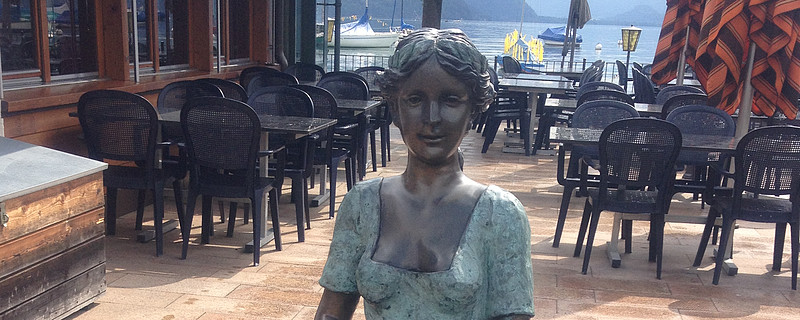
点评:特斯拉的智能驾驶系统“完全自动驾驶能力”(FSD,Full-Self Driving)不但解放了驾驶者,也给保险行业带来了全新的挑战。笔者一个朋友使用FSD功能有几年了,他说每当驾驶到高速公路上就可以看看报纸了,这样美好的驾驶体验就像刚刚使用智能手机替换功能机的感觉。但是Ajit 认为自动驾驶只是将大量费用从操作失误转移到了汽车配件上,因为维修的成本等于事故数量乘以每起事故的成本,虽然事故数量降低了,但是如果每起事故的成本如果上升了,可能总成本仍然没有降低,所谓“一体化压铸”,是指采用特大吨位压铸机,将多个单独、分散的零部件高度集成,例如特斯拉采用的压铸一次成型几个大型铝铸件,从而替代多个零部件先冲压再焊接或铆接,如果一个零件坏了就只能更换铸件,这就像电脑更换主板一样。
笔者认为以后最重要的是驾驶数据,谁掌握了这些就主宰了汽车保险,这样可以做到一人一价,更加精确,以后电动汽车厂商可以自己下场提供保险,这可能是汽车保险历史上的最大变局。事实上2024年5月6日,国家金融监督管理总局发布批复,同意深圳比亚迪财产保险有限公司在部分省市的交强险条款和费率,这也意味着,比亚迪可以开始卖保险了,这些对消费者无疑是好消息,未来几年会有结果,大家拭目以待。
Becky Quick:这个问题是给 Warren 和 Ajit 的。Jeff Oyster 提问。作为伯克希尔和特斯拉的股东,我想听听您对 GEICO 可能产生的财务影响的看法,假设 Elon Musk 实现了他的完全自动驾驶目标。在特斯拉最近的财报电话会议上,Elon 说,如果你有大规模的、统计上有意义的数据,可以确定地表明自动驾驶汽车的事故率只有人类驾驶汽车的一半,我认为这很难忽视。假设 Elon 成功地将事故率降低了 50%,而不是人类驾驶,那么汽车保险费率是否会下降以反映承保风险的降低,从而对 GEICO 的收入和浮动资金以及利润率产生不利影响?
Warren Buffett:嗯,是的。好吧,我们举一个极端的例子。假设明年美国只会发生三起事故,因为某种疯狂的理由是,任何减少事故的事情都会降低成本。但这比以前人们做的要难得多。但很明显。但如果真的发生了,数字会显示这一点,我们的数据会显示这一点,价格会下降。过去有很多人谈论过这样做。我的意思是,通用汽车曾经在保险业务中占有很大的比重,当 Uber 刚起步时,他们使用了一些公司,现在,我想阿吉特会证实他们现在濒临破产,不是吗?因为以错误的价格承接了事情。是真的吗?
阿吉特:是的。是的。是的。
沃伦·巴菲特:保险总是看起来比实际容易,而且它很有趣,因为你一开始就拿到了钱,你知道,然后你后来才发现你是否做了一些愚蠢的事情。但当有人给你钱,你给他们一张小纸条时,这是一个非常诱人的生意。但真正了解你是否——我的意思是,如果事故减少 50%,这对社会有利,对保险公司的业务不利。但你知道,对社会而言,这是我们目前所寻找的。你可能会发现这很有趣。我的意思是,每行驶 1 亿英里的乘客死亡人数。我认为,实际上,在我年轻的时候,死亡人数是 15 人,但即使在二战后,死亡人数也只下降了 7 人左右,而拉尔夫·纳德为美国消费者做出的贡献可能比历史上任何人都多,因为 7 或 6 人现在已经下降到 2 人以下。我认为如果没有他,死亡人数不会下降到这个水平。在疫情期间,人们的行为有一些偶然的数据,这很有趣,因为他们没有立即开车,没有行驶那么多英里,但他们开车更危险,不是吗?是这样的吗,阿吉特?
阿吉特·贾恩:是的。是的。所以我想说的是,特斯拉认为,由于他们的技术,事故数量确实减少了,这一点当然是可以证明的。但我认为还需要考虑的是,每起事故的维修成本都大幅上升。所以,如果你把事故数量乘以每起事故的成本,我不确定事故总数是否像特斯拉希望的那样下降了。特斯拉一直在考虑直接或间接地签订保险合同。到目前为止,它并没有取得多大成功。时间会证明一切。但我认为,你知道,自动化只是将大量费用从操作员转移到了设备提供商身上。
沃伦·巴菲特:好的,我们快到中午了,我们要去吃午饭了。我只想告诉大家,如果大家能在 1:00 重新开会时就座并做好准备,我将不胜感激,因为我们将放映另一部非常短的电影,并对我认为会很有趣的东西做一点解释,当然我也很感兴趣。所以我想这样做。我们将在 12 点准时休息,我希望大家在 1:00 时真正努力坐在自己的座位上并保持安静,如果做不到,请等几分钟,在大厅里观看等等。但我们不想让人们坐在座位上,让人们在 1:00 时在这里闲逛,就像在纽约看戏剧一样。这需要几分钟,只需要几分钟就可以讲完。我们将在 1:00 开始,但我们不想在这段时间内安排人们就座。但是现在让我们开始吧。我们会一直坚持到 12:00,然后休息到 01:00,然后前往第 11 站。
Becky Quick: This question’s for Warren and Ajit. It’s from Jeff Oyster. As a Berkshire and Tesla shareholder, I would like to hear your thoughts on the potential financial effects to GEICO, assuming Elon Musk delivers on his fully autonomous driving goal. On Tesla’s most recent earnings call, Elon said, if you’ve got, at scale, a statistically significant amount of data that shows conclusively that the autonomous car has, let’s say, half the accident rate of a human driven car, I think that’s difficult to ignore. Assuming Elon succeeds in reducing accidents by 50% versus human drivers, wouldn’t auto insurance rates fall to reflect the reduced underwriting risks, thereby adversely impacting GEICO’s revenues and float and perhaps margins, too?
Warren Buffett: Well, yeah. Well, let’s just take the extreme example. Let’s say there are only going to be three accidents in the United States next year for some crazy reason that anything that reduces accidents is going to reduce costs. But that’s been harder to do than people have done before. But obviously. But if it really happens, the figures will show it, and our data will show it, and the prices will come down. There have been a lot of people talk about doing that in the past. I mean, General Motors used to be very big in the insurance business, and when Uber first started, they used some firm, which now is, I think Ajit will confirm they’re close to bankruptcy now, aren’t they? Because of taking things on at the wrong prices. Is that true?
Ajit: Yep. Yeah. Yeah.
Warren Buffett: Insurance always looks easier than it is, and it’s so much fun because you get the money at the start, you know, and then you find out whether you’ve done something stupid later on. But it’s a very tempting business when somebody hands you money and you hand them a little piece of paper. But really knowing whether you’re - I mean, if accidents get reduced 50%, it’s going to be good for society and it’s going to be bad for insurance companies’ volume. But, you know, but for society is what we’re looking for so far. You might find it kind of interesting. I mean, the number of people killed per 100 million passenger miles driven. I think it actually, when I was young, it was like 15, but even post world war two, it only fell like seven or thereabouts and Ralph Nader probably has done more for the american consumer than just about anybody in history because that seven or six has now come down to under two. And I don’t think it would have come down that way without him. There have been some kind of fluke figures of what people did during the pandemic, which are quite interesting because they, they didn’t drive immediately, they didn’t drive as many miles, but they drove more dangerously, didn’t they? Is that right, Ajit?
Ajit Jain: Yeah. Yeah. So the point I want to make in terms of Tesla and the fact that they feel that because of their technology, the number of accidents do come down, and that is certainly provable. But I think what needsto be factored in as well is the repair cost of each one of these accidents has skyrocketed. So if you multiply the number of accidents times the cost of each accident, I’m not sure that total number has come down as much as Tesla would like us to believe. Tesla has been toying with the idea of writing insurance directly or indirectly. And so far it hasn’t really sort of been much of a success. Time will tell. But I think, you know, automation just shifts a lot of the expense from the operator to the equipment provider.
Warren Buffett: Okay, we’re getting close to noon when we’re going to break for lunch. I just want to tell everybody that I would appreciate it very much if they will get in their seats and be ready at 1:00 when we reconvene, because we will have another very short little movie and we’ll just have a little explanation of something that I think will be of interest, certainly of interest to me. So I would like to. We will break promptly at 12, and I would like everybody to really make an attempt to be in their seat and quiet at 1:00 and if you can’t do that, if you’ll wait a few minutes and watch in the halls and all that. But we do not want to be seating people and have people milling here at 1:00 and just like a play in New York or something. It’ll take a few minutes and only a few minutes to cover what. We’re going to it at 1:00 but we don’t want to be seating people during that period. But now let’s. We’ll go on till 12:00 and then we’ll have a break until 01:00 and we will go to station 11.